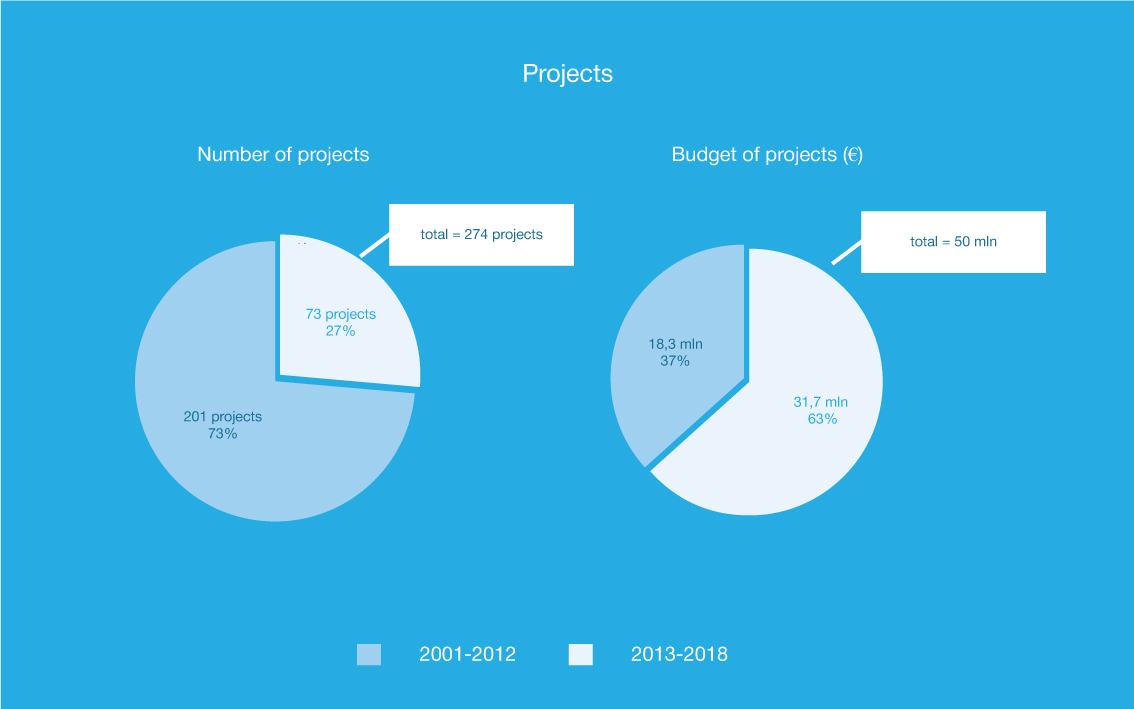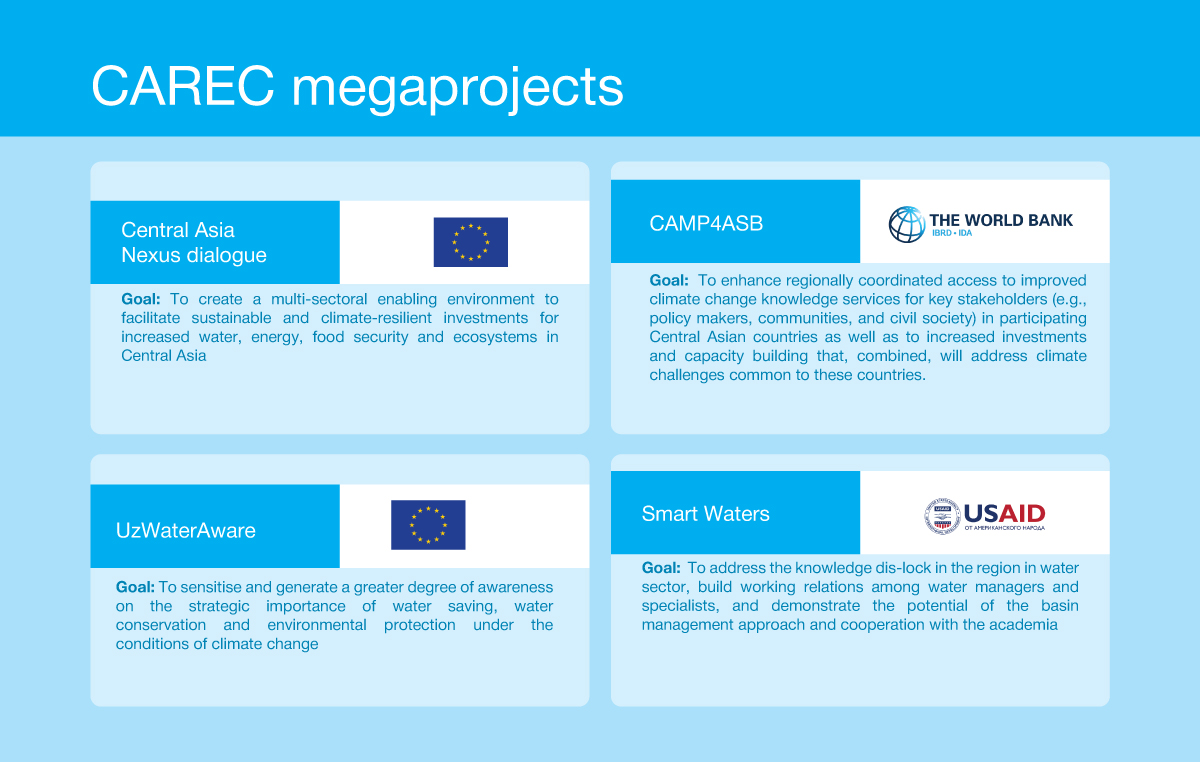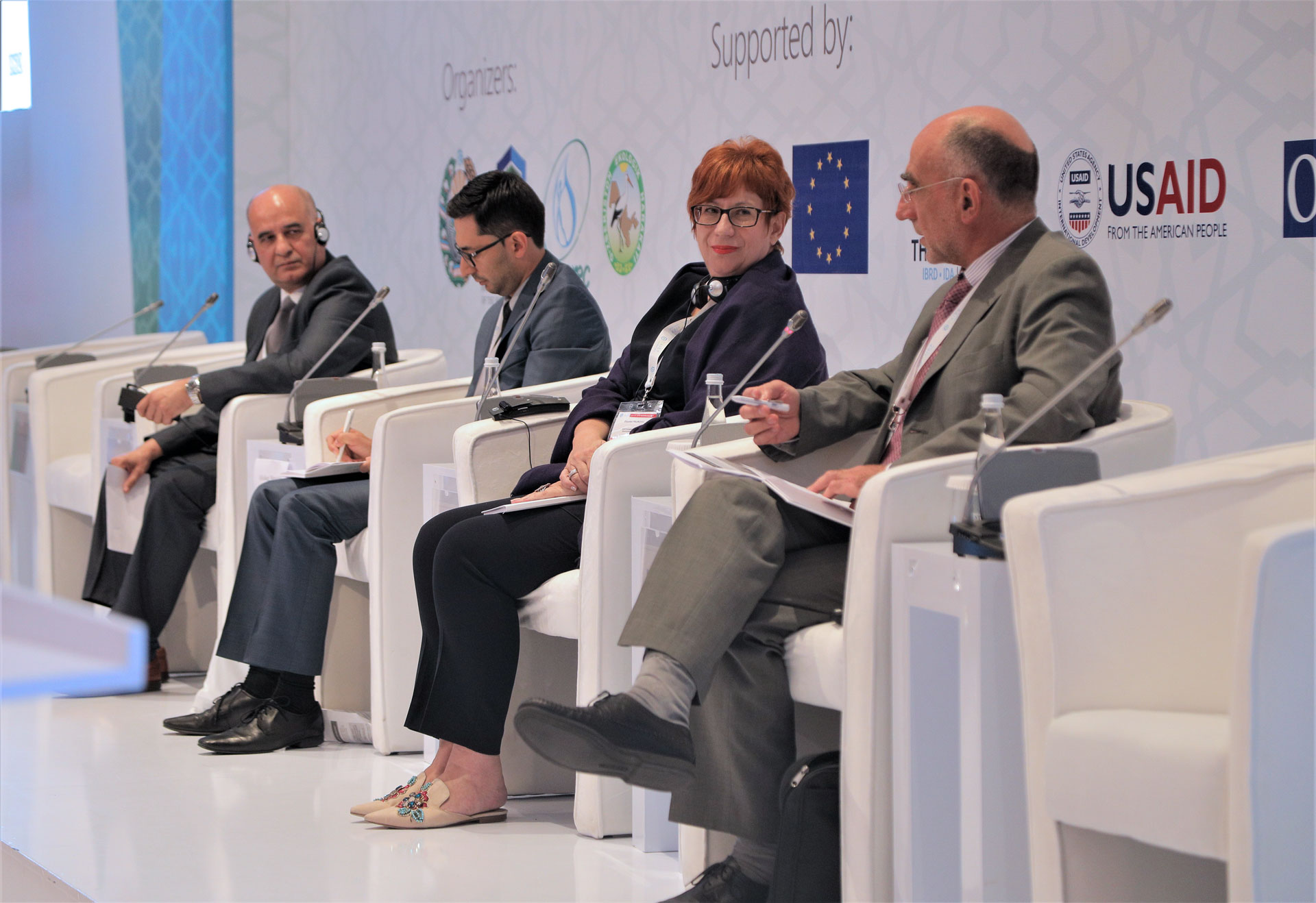The election of the new Executive Director of CAREC is coming to a logical conclusion. According to the charter, the Executive Director of CAREC is selected through an open competition for a period of three years, with the possibility of extension for a second term, but not more than two consecutive terms. The current executive director, Dr Iskandar Abdullaev, began his duties in 2013. This year, the mandate of Dr Abdullaev is coming to its end, and the Board of Governors of CAREC will elect a new Executive Director.
The Regional Environmental Center for Central Asia is starting a new stage of its development. Today, CAREC is the leading regional centre for environmental and sustainable development knowledge in Central Asia, recognized by national, regional and international partners. We bring to your attention an interview with the current Executive Director of CAREC, Dr Iskandar Abdullaev, on the results of the CAREC work of these last six years.
New Work Format
According to Dr Abdullaev, one of the main challenges for the organization in 2013 was the transition from a project implementing organization to a regional platform. “The transition to a regional cooperation platform, to an organization that truly contributes to the development of the region, not only fulfils specific project orders,” explained Dr Abdullaev. CAREC was established in 2001 by the governments of Central Asian countries and until 2008 received directly targeted grants to support its activities.
In the last six years, Iskandar Abdullaev notes, this issue has been resolved. In the period from 2013 to 2018, CAREC created a number of dialogue platforms with the aim of expanding cooperation on various environmental issues: the Central Asian International Environmental Forum, the Central Asia Climate Change Conference, the Meeting of Parliamentarians and Foreign Ministry representatives. It is also worth noting that from a large number of point projects, CAREC has moved on to the implementation of large-scale system projects.

Megaprojects
At this moment, CAREC is implementing 4 megaprojects: Smart Waters, CAMP4ASB , Central Asian Nexus Dialogue and UzWaterAware. In addition , in the past, a large project of the European Union for water cooperation in Central Asia was implemented: WECOOP . “All the projects are successfully implemented. For example, by the time the WECOOP project ended, we have managed to move to a qualitatively new level of our dialogue on water issues. Now we don’t have to discuss anymore how to divide water resources in the region, rather how to distribute the benefits that we receive from the water. Also within the project, a cooperation platform of Foreign Ministries and Parliaments has been created. "-added Iskandar Abdullaev.

According to Dr Abdullaev, short-term projects quickly end and their end result is difficult to see. Large-scale projects make it possible to work systematically. In addition, ensure the financial sustainability of the organization. “The organizational structure has been developed; in addition to the head office, six offices have been established in the countries of the region, including Afghanistan. Offices are actively working and developing. I can say that some offices have reached a level where we can call them stable innovation centres,” explained Dr Iskandar Abdullaev.
Iskandar Abdullaev also said that created a reliable base of partnerships at the international level. " At the national level, we became, one might say, one of the top three most reliable development partners. CAREC is considered a leading organization in the region. This is one of the most important achievements to date, "- said Dr Abdullaev.
Strengthen regional cooperation
Separately, CAREC’s efforts to strengthen regional cooperation in environmental protection in Central Asia are worth mentioning. “Dialogue should not stop, and it is needed at all levels. Dialogue at the technical level is one of our top priorities. Dialogue at the level of decision-makers is allowed by the platform of Parliaments and Foreign Ministry representatives we have created. The next level we want to reach is an annual Central Asian International Environmental Forum "- said Dr Abdullaev. Annually, in a country of Central Asia, on a rotating basis, an environmental event, which brings together scientists, decision makers, government departments and NGOs.
In addition, CAREC annually holds the Central Asia Climate Change Conference. The second conference will take place on the 3-4 April in Tashkent. “Creating these platforms, we understood that they must be sustainable. Sustainability is ensured by the fact that these platforms are owned by the countries themselves, there is a rotation. For example, in 2018 CAIEF was held in Uzbekistan, next year a different country will be the host", - said Dr Abdullayev.

Changing political environment
The political situation in the region also significantly influences the activities of CAREC. Executive Director of CAREC Dr Iskandar Abdullaev said that over the past 6 years there have been big changes in the region. "Especially in the last two and a half years, the situation changed dramatically. Environmental protection issues have attracted the attention of politicians at the highest level, our presidents. Only in the past year, in 2018, the presidents of the countries of Central Asia met twice, and this is despite the fact that meetings at this level did not take place for almost 10 years. Separately, I want to emphasize that in both meetings, environmental protection and water resources management issues were at the centre of attention, ” explained Iskandar Abdullaev.
There have been changes at the national level as well. Central Asian countries have actively participated in the signing of the Paris agreement. All countries in the region have made commitments to reach the Sustainable Development Goals. “That means, at the national level, the issue of environmental protection is becoming a development-related question. Our countries are talking about green development. This also gives impetus to environmental cooperation. But at the same time, not everything, as they say, is so bright, ”notes Iskandar Abdullayev.
According to Dr Abdullaev, environmental problems in the region have become more complex. It witnesses firsthand the effects of climate change. Central Asian cities fall into the list of the most polluted cities in the world. “The ecological conditions in the region are deteriorating, access to drinking water decreases. Land degradation, desertification is increasing. Time is becoming precious. We have little time to solve all these environmental issues.” explains Iskandar Abdullaev.
Further development of CAREC
According to Dr Abdullaev, CAREC should continue to follow its mandate and strengthen cooperation platforms, initiate processes and dialogues, as well as projects aimed at solving specific problems. “This role should be strengthened. Besides, CAREC, as a knowledge centre, should work on informing decision-makers and the public. We must involve not only officials and government bodies but also the public. Unfortunately, the public is for the moment being not very much involved in environmental issues, ”said Dr Abdullaev. He also noted that it is important to strengthen cooperation with other organizations working in the field of environmental protection.
All this will be a challenge for the new Executive Director of CAREC, notes Dr Abdullaev. “Bringing in a new Director will save the centre from stagnation, for the organization it is important. Already three directors have changed, and the organization has become stronger with each, ” emphasized Iskandar Abdullaev. Under the first director, CAREC went through a process of formation. With the second, the organization was successfully able to secure independent sources of funding. And at this stage, emphasized Iskandar Abdullaev, CAREC has become a platform for environmental cooperation.
.jpg)
